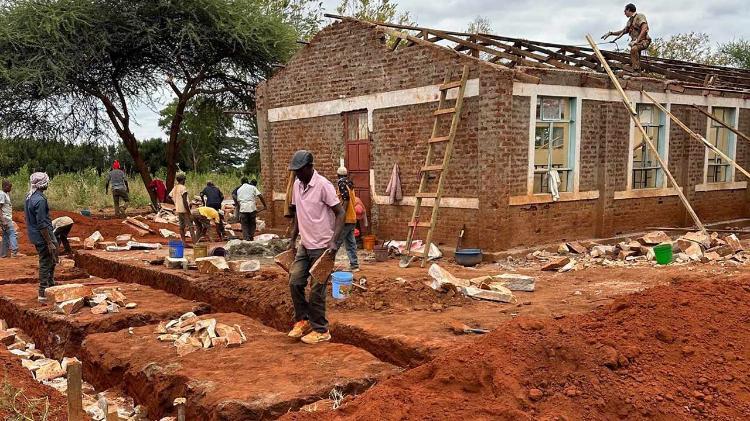Case studies
- Indigenous students take lead in tutoring program
- A path from poverty
- Bringing safety, hygiene and hope to Tanzania
Indigenous students from UOW are making a difference to the lives of local indigenous high school students through a new tutoring program being run by Woolyungah Indigenous Centre (WIC).
The tutoring program is a joint initiative between Woolyungah and Indigenous education organisation, the Aurora Education Foundation.
Already achieving positive outcomes in other locations, UOW and Woolyungah have now implemented the tutoring program which aims to Redefine Indigenous Success in Education (RISE) through long-term, Indigenous-led programs that enable Aboriginal and Torres Strait Islander high school students to define and pursue their own version of success. RISE aims to address critical gaps in knowledge about what works in Indigenous education.
The UOW students provide weekly or fortnightly face-to-face tutoring sessions for students from Years 8 to 12 at UOW’s Wollongong campus during the school term.

- SDG 1 - No Poverty
- SDG 4 - Quality Education
- SDG 10 - Reduced Inequalities
- SDG 11 - Sustainable Cities and Communities
Making a difference in the lives of local Indigenous high school students

Born into a life of poverty, Sri Lankan engineer Dr Sinniah K Navaratnarajah changed the course of his life and his home country through education.
After achieving multiple international engineering qualifications, including a PhD in Engineering from UOW, Dr Navaratnarajah returned to the University of Peradeniya, Sri Lanka as a senior lecturer and researcher. He was able to secure a 40-million-rupee World Bank-funded AHEAD grant and embarked on a three-year research collaboration to improve the performance of higher-speed rail and utilise waste materials to reduce maintenance costs.
The project has already produced more than 40 publications, and Dr Navaratnarajah has received numerous awards including the prestigious Sri Lankan President’s Award for Scientific Research and an Institution of Civil Engineers (United Kingdom) award for best paper published by overseas researchers.
Dr Navaratnarajah has also actively helped children in his community escape the cycle of poverty and, in doing so, advance his nation’s potential through education. He ensured students had access to teaching materials when internet and phone services weren’t available during the pandemic.
With the support of international NGOs and colleagues, he has helped distribute 60 smart classrooms for digital and online learning, built a library for the community and has also provided scholarships to more than 70 disadvantaged students. In recognition of his work, Dr Navaratnarajah was a finalist in the Social Impact category of the 2023 UOW Alumni Awards.
- SDG 1 - No Poverty
- SDG 4 - Quality Education
- SDG 12 - Responsible Consumption and Production
As part of an educational immersion project, UOW staff and students from various disciplines including social work, psychology, primary education, PDHPE, international studies and electrical engineering, travelled to Tanzania to help renovate a girls’ dormitory. They worked with local staff at So They Can, an Australian NGO, and the Manyara Primary School community.
Approximately 120 girls were sharing a space that had capacity for 50 beds where up to four girls would share one bed – some of them not equipped with a mattress. Also, less than a third of the beds had access to mosquito net coverage despite malaria in the area.
After eight days on the project, the team helped repair the roofing structure, removed and replaced old ceiling sheeting, added new guttering and connected this to a water tank for the first time. Three new water tanks were installed, including a solar powered pump, and a new fence was installed around the dormitory protecting the girls from dangerous wildlife previously roaming the school grounds.
Additional works included repairs to broken windows, laying an outdoor concrete foundation, procurement of mattresses and mosquito nets and the relocation of a shipping container to provide onsite storage and a future study area.

The experience was life changing for the UOW participants, who provided their skills and time to deliver real and lasting impact.
- SDG 1 – No Poverty
- SDG 2 – Zero Hunger
- SDG 4 – Quality Education
- SDG 10 – Reduced Inequalities
- SDG 11 – Sustainable Cities and Communities















